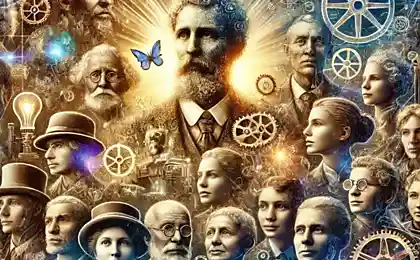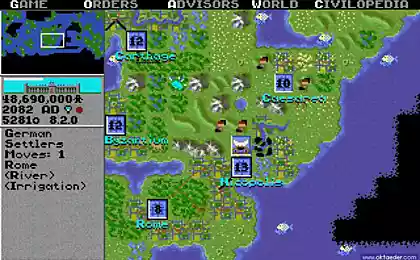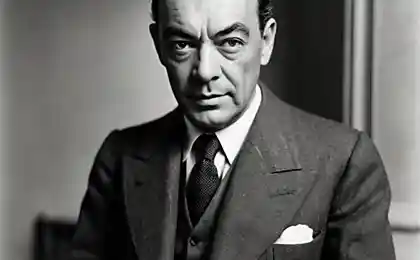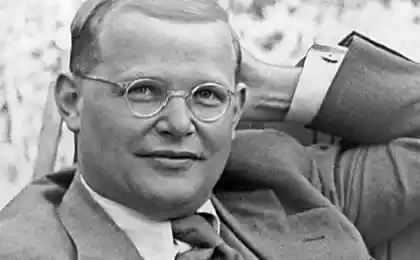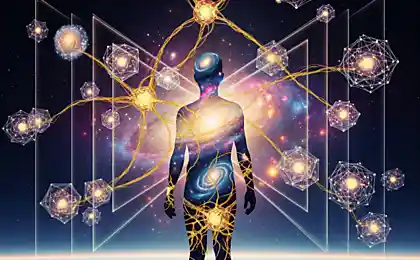10
Wisdom vs. Stupidity: A Guide to Surviving the Real World

In a world where information travels at the speed of light and decisions are made in fractions of a second, the distinction between wisdom and stupidity becomes critical to survival. But what really separates a wise man from a fool? And why do some people make brilliant decisions all the time while others step on the same rake?
Forget the philosophical treatises of ancient thinkers; today we are talking about practical wisdom that works here and now. It’s about the difference that determines whether you thrive or languish in the modern world.
Anatomy of Modern Stupidity
Stupidity is not a lack of intelligence. It is a system of thought that works against its possessor.
Imagine someone browsing social media every morning, absorbing memes and short videos. He feels informed, but in fact his brain becomes a sieve through which all important information slips. This is modern stupidity in action.
Stupid likes slogans
Instant decisions based on emotions. “Buy now, then think,” “All the rich are thieves,” “Tomorrow I’ll start a new life.”
Wisdom Prefers Calculation
Careful analysis of data, studying the consequences, drawing up plans taking into account risks and opportunities.

Memory as the Weapon of Mind
Stupidity lives in the eternal present. She forgets yesterday's mistakes and doesn't plan tomorrow's actions. Remember that friend who took out a vacation loan for the third time, wondering where the debts came from? This is a classic example of how a short memory turns life into an endless cycle of the same mistakes.
Wisdom uses memory as a navigational system. She remembers which decisions led to success and which to failure. A wise person maintains a mental database of his or her experience and regularly consults it.
Practical tips for the development of memory solutions:
- Keep a journal of important decisions and their consequences
- Analyze your mistakes a month after they have been made.
- Create checklists for repetitive decisions
- Regularly review your goals and how to achieve them
Knowledge versus Consumption
Modern stupidity has become a kind of junkie of information fast food. She craves quick likes, instant recognition and easy answers to difficult questions. Stupidity believes in miracles, in the fact that success will come by itself, just wait for the right moment.
Wisdom is open to all knowledge, understanding that there is no superfluous information - there is only the wrong time to apply it.
A wise man treats knowledge as a collector of rare coins. Each new information is evaluated, catalogued and finds its place in the general system of understanding the world. He is not afraid to admit his ignorance and is willing to take the time to study what may seem unimportant today but will prove critical tomorrow.

Time as a Non-Renewable Resource
Stupidity lives in the illusion of infinite time. She puts off important things “for later”, spends hours on meaningless entertainment and is genuinely surprised when life rushes by without leaving anything meaningful.
Stupidity knows no time.
“I still have a lot of time,” “I’ll have time later,” “Life is long.” The result is procrastination and missed opportunities.
Wisdom looks at the clock
Clear planning, priorities, understanding the value of time. Every minute matters.
Wisdom makes time an ally, not an enemy. She understands that everything is impossible, so she focuses on what is really important. A wise man is willing to sacrifice short-term pleasure for long-term gain.
Clear Goals vs. Blurred Desire
Stupidity wants “something good,” “to be happy,” “to get rich.” These vague formulations turn life into a chaotic movement without direction. As a result, unsuccessful relationships, unloved work and a constant feeling of dissatisfaction.
How to turn desires into goals:
- Formulate goals as specific and measurable as possible
- Establish a clear time frame
- Breaking Big Goals into Small Steps
- Regularly review and adjust your plans
- Learn to say “no” to things that distract you.
Wisdom knows not only what it wants, but why. She is ready to give up the good for the sake of the magnificent, from the comfortable for the sake of the necessary. A wise man understands the difference between his desires and the expectations of others.
A Practical Guide to the Development of Wisdom
1. Practice the 24 Hours Rule
Before any important decision, give yourself a day to think. Emotions will subside and you will be able to assess the situation soberly.
2. Keep an "Error Diary"
Write down your mistakes and analyze their causes. Turn errors into a database for future solutions.
3. Develop "Antifragility."
Instead of avoiding difficulties, learn to benefit from them. Every challenge is an opportunity to become stronger.
4. Invest in long-term thinking
Ask yourself, “Where will I be in 5 years if I continue to do the same?” It's sobering better than any motivational video.
Conclusion: Choices Every Day
Wisdom and stupidity are not innate qualities, but the result of daily choices. Every morning, we decide whether to scroll through social media feeds or read something useful, make a quick decision or take time to analyze, spend money on immediate pleasure or invest in the future.
The difference between a wise man and a fool is not in the amount of knowledge, but in the ability to apply it to improve one’s life and the lives of others.
Remember, in a world where stupidity screams into a megaphone, wisdom speaks softly, but its words carry weight. Choose wisdom – your future self will thank you.
Glossary of terms
Practical wisdom The ability to apply knowledge and experience to make effective decisions in everyday life, as opposed to theoretical wisdom, which remains at the level of abstract reasoning.
Information fast food Easily digestible content (memes, short videos, news headlines), which gives the illusion of gaining knowledge, but does not carry practical value.
Antifragility Nassim Taleb’s concept, which describes the ability not only to survive under stress and chaos, but to become stronger.
Procrastination The psychological tendency to postpone important tasks for later, often replacing them with less meaningful but more enjoyable activities.
Long-term thinking The ability to consider the long-term consequences of one’s actions and make decisions based on future outcomes rather than immediate desires.
7 Reasons to Be Proud of What You Didn't Do
9 Signs of Emotional Illiteracy That Ruin Your Relationship
